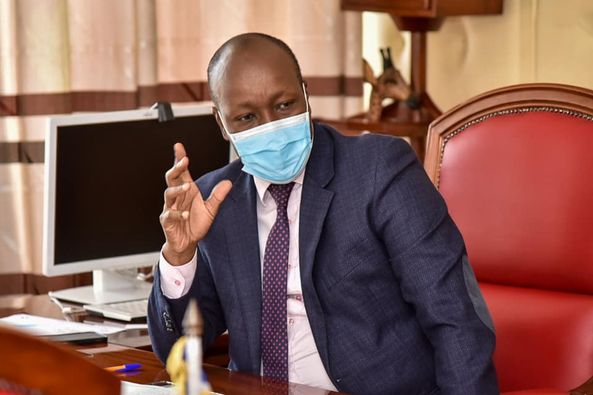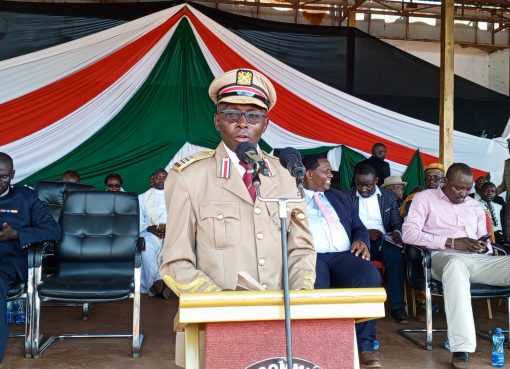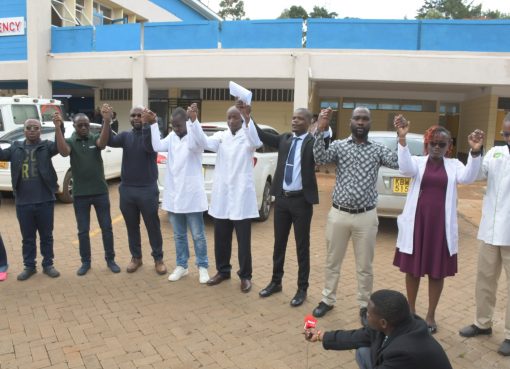More than 5,000 delegates are expected in Nakuru next month to attend the Fifth Annual Legislative Summit that will bring together Senators and Members of County Assemblies from the 47 devolved units and partners.
Host, Governor Lee Kinyanjui said this year’s conference whose theme is ‘Legislating in Crisis for Resilience, Emerging Lessons and Call to Actionable Policy’ will seek to identify the gaps and challenges in legislation that impedes devolution and develop measures to address them.
Mr Kinyanjui indicated that the three-day forum which is scheduled to be officially inaugurated on September 7th will assess achievements and address the gaps in policy and legislation and seek to build on the gains of the first four legislative summits.
Speaking at the County Headquarters, the governor noted that the event will provide an opportunity to identify opportunities that can be harnessed to accelerate devolution and provide a platform for dialogue amongst key actors in devolution to learn and share experiences.
Senate Speaker Kenneth Lusaka, chairperson of County Assemblies Forum Ndegwa Wahome, Senate Leader of Minority James Orengo, and Senate Leader of majority Samuel Losuron Poghisio, Whips of the Majority Party and Whips of the Minority Party in the county assemblies will be among those who will address the guests.
Cabinet secretaries Eugene Wamalwa (Devolution), Ukur Yattani (Treasury) and Attorney General Kihara Kariuki are expected to grace the summit. Other invited guests include Auditor General and Controller of Budget.
Governor Kinyanjui, Nakuru County Assembly speaker Joel Maina Kairu and Nakuru Senator Susan Kihika will give opening remarks.
Delegates will talk about the challenges facing regional economic blocs and enhancing social and economic development. Ways of strengthening inter and intra-governmental relations for effective implementation of devolution will also form part of the discussions.
“We will bring on board legal experts who will highlight areas that require urgent legislation, implications for county assemblies and way forward. Participants will deliberate on aligning existing policies and legislation to achieve the Big Four agenda.
“Delegates are expected to discuss ways of improving the audit function for effective oversight and effective public financial management through the audit process,” Kinyanjui pointed out.
The Fourth Annual Legislative Summit whose theme was ‘Accelerating Devolution, Assessing the progress and addressing gaps in policy and legislations’, was held in Kisumu from April 15th to 17th ,2019, however the event was postponed last year following the outbreak and spread of Covid-19 pandemic.
The summit is also aimed at taking stock of the progress and identifying challenges faced by county legislatures under devolved system of governance, with Kinyanjui adding that it will present an excellent opportunity for the Senate, County Assemblies and stakeholders to constructively dialogue on matters affecting devolution.
“The Fifth Annual Legislative Summit will be a critical reflection on the experiences and lessons during the Covid-19 pandemic, the economic ravages caused and deliberating on possible policy and legislative solutions to address gaps and define a path to socio-economic recovery.
“Most importantly, this year’s Summit will critically look at how County Governments measured up during Covid-19 pandemic, the challenges facing counties in the issues of access and demand of health care and propose remedies in the challenges faced,” observed the Governor.
Other topical areas scheduled to be tackled include Climate Change and Climate Action, and how Counties can participate in the mainstreaming of climate change in their policies and plans including ensuring that adequate budgets are set aside for possible actions.
“Kenya is very vulnerable to climate change with current projections suggesting that its temperature will rise up to 2.5ºC between 2000 and 2050, while rainfall will become more intense and less predictable. Even the slightest increase in frequency of droughts will present major challenges for food security and water availability, especially in Kenya’s Arid and Semi-Arid Lands (ASALs) in the north and east.
“As such, Kenya has assessed priority climate change areas of action that have been communicated through various policy documents such as the National Climate Change Response Strategy (NCCRS), the National Climate Change Action Plan 2013 – 2017 (NCCAP), National Climate Change Action Plan 2018-2022 (NCCAP) and the National Policy Framework on Climate Change. These have been cascaded to devolved county governments,” said Kinyanjui.
Participants will come up with recommendations on policy and legislation for resilience and a road map to socio-economic recovery.
The summit will discuss ways of providing the legal foundation for collaborative partnership in institutional participatory management of disasters, including mobilization of the essential resources necessary for the management of all disasters.
“Participants will discuss ways of ensuring accountability in the use of funds, and development of legal and statutory requirements for audit of the financial statements of emergency funds and enhancing access to information to facilitate public participation and decision making.
“This summit will also explore how policymakers can best promote mitigation, adaptation, and the transition to a low-carbon economy, emphasizing the economic and social implications of reforms and potential policy trade-offs,” observed the governor.
Further Deliberations will be made on Public Spending on Climate Change, Covid-19 and Climate change mainstreaming and how to promote innovations towards climate change for sustainable cities and urban areas.
By Anne Mwale




